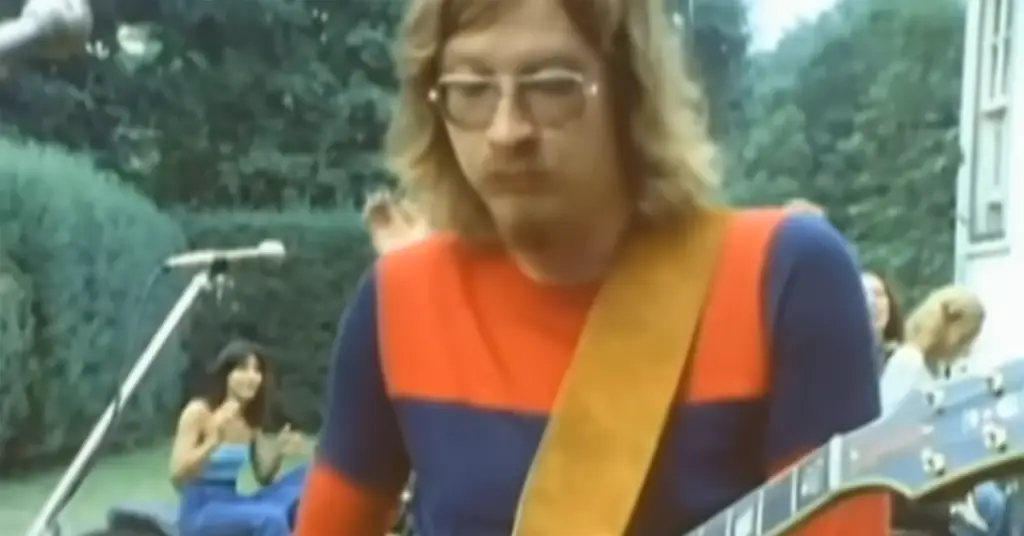Ram Jam – Black Betty: The Wild Pulse of American Rock
When Tradition Met Pure Adrenaline
There are songs that make you think — and then there are songs that make your blood move. Ram Jam’s “Black Betty” is one of the latter. Released in 1977, this roaring, foot-stomping anthem took a 20th-century folk tune and cranked it through a wall of electric guitars, turning an old work song into a shot of unfiltered rock energy.
The first time I heard it, I couldn’t help but grin. That riff — jagged, relentless, impossible to ignore — hits like a hammer on steel. Before you know it, you’re clapping, stomping, or yelling “Whoa, Black Betty!” right along with the band.
The Roots: From Field Song to Rock Legend
“Black Betty” has origins that go way back — long before rock and roll. It was first recorded in the 1930s by folk collector John Lomax, sung by African American laborers and prison work crews in the Deep South. Over the years, it was performed by blues legends like Lead Belly, each version morphing slightly, carrying traces of African American history and struggle.
By the time Ram Jam got hold of it, the song had lived a dozen musical lives — but never one quite like this.
Ram Jam’s Reinvention
Formed by guitarist Bill Bartlett, Ram Jam was a short-lived New York outfit that fused hard rock and boogie with swagger to spare. Bartlett had previously played “Black Betty” with his old band, Starstruck, and decided to revive it for Ram Jam’s debut album.
What came out of those sessions was pure lightning in a bottle — traditional rhythm and blues supercharged with distortion and attitude.
The Sound: Groove, Grit, and Glory
From the opening guitar riff to the pounding drums, “Black Betty” is all momentum. There’s no slow build, no pretense — just raw groove from the first beat. The song’s rhythmic chant gives it a tribal intensity, while the guitars weave blues, funk, and hard rock into a hypnotic blend.
Bartlett’s gritty vocal delivery sells every word with conviction. You might not even know who “Black Betty” is — a woman, a car, a rifle, or a metaphor — but it doesn’t matter. You feel it.
And that breakdown near the end, when the band drops into that funky groove before the final explosion? It’s one of the great moments in rock — proof that rhythm alone can ignite a crowd.
The Controversy
Over the years, “Black Betty” has sparked plenty of debate. Some listeners criticized Ram Jam’s version for taking a song rooted in African American history and turning it into a rock anthem without proper context. Others celebrated it for keeping the song alive and introducing new generations to its deep roots.
Whatever your take, there’s no denying that Ram Jam’s rendition shines a bright (and loud) light on the enduring power of folk music — how it evolves, adapts, and refuses to die.
A Fan’s Reflection
The first time I heard “Black Betty” blasting through a car radio, it felt like the world just got louder in the best way possible. It’s not a song you analyze — it’s one you feel in your bones.
There’s something timeless about it — that mix of danger and joy, of rhythm and rebellion. It’s the sound of tradition colliding with rock’s reckless energy, and it still feels alive every time it plays.
Why Black Betty Still Rocks Like No Other
More than four decades later, Ram Jam’s “Black Betty” remains one of rock’s most recognizable and infectious songs. It’s built on a history much older than itself — proof that music can evolve and still carry echoes of its origins.
For me, it’s one of the great reminders of what rock and roll is supposed to do: shake you up, wake you up, and make you move.
So go ahead — turn it up, stomp your foot, and let that riff do what it’s been doing since 1977. Because some songs don’t age. They just keep rumbling down the highway, louder than ever.



Facebook Comments